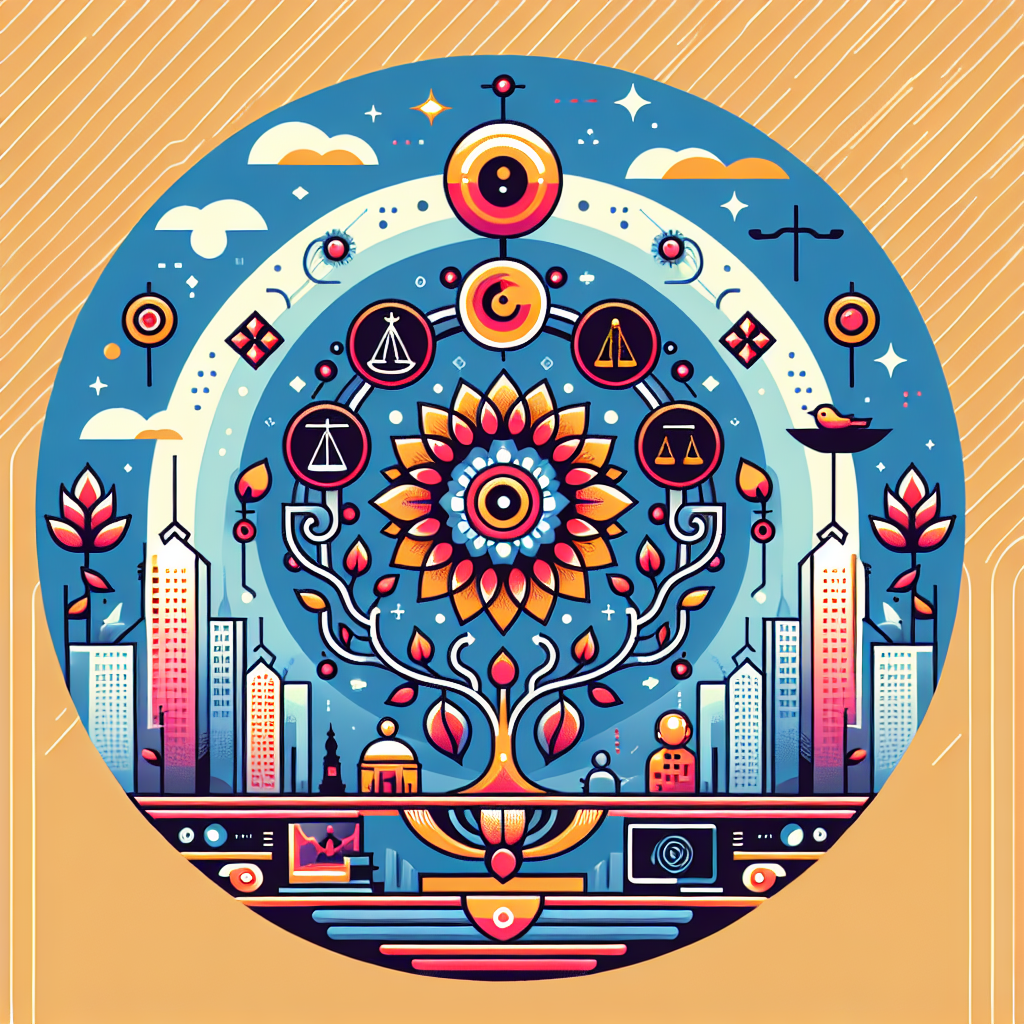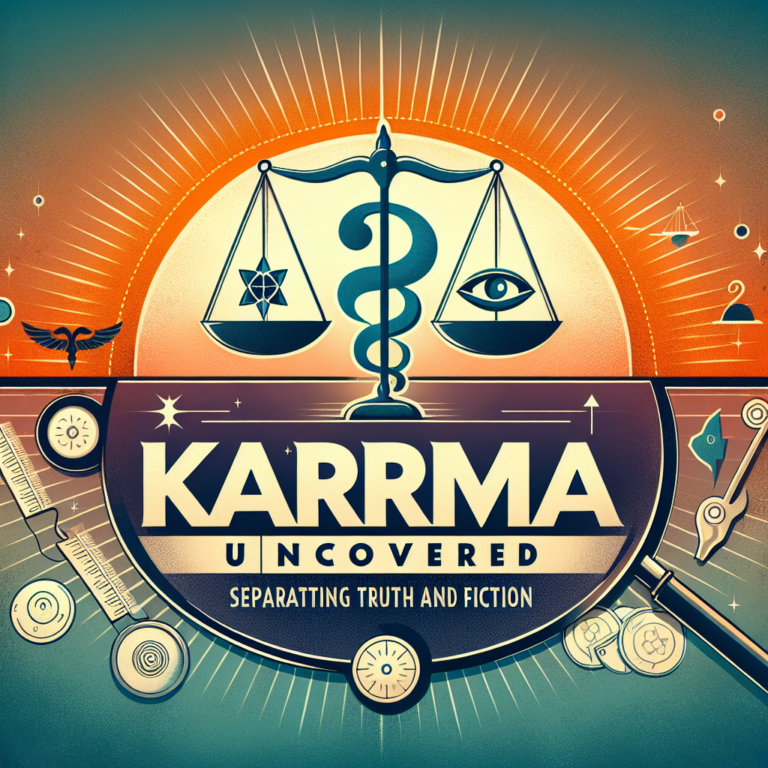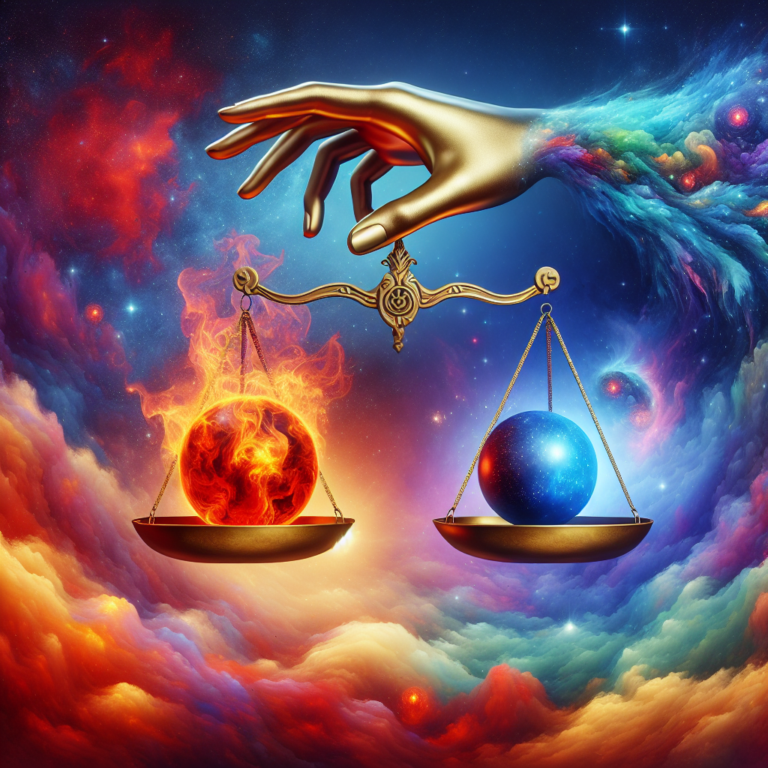The concepts of karma and reincarnation have fascinates humans for centuries, transcending geographical, cultural, and religious boundaries. Rooted primarily in Hinduism and Buddhism, these ideas offer profound insights into the nature of existence and the interconnectedness of life. But how do these ancient concepts resonate in a modern context? This article explores the cycle of life through the lenses of karma and reincarnation, providing a holistic understanding applicable to contemporary life.
Theoretical Foundations
Karma: Cause and Effect
Karma, derived from the Sanskrit word for action, encapsulates the principle of cause and effect. It posits that every action has consequences, shaping not only our current circumstances but also our future experiences. In modern terms, we might equate karma to the idea of "what goes around comes around." The essence of karma encourages individuals to act ethically and mindfully. In a world increasingly focused on individualism and instant gratification, the karma principle serves as a reminder of the interconnectedness of our actions and their impact on the larger tapestry of life.
Consider a scenario where a person engages in positive actions, such as volunteering or helping those in need. These acts may not yield immediate rewards, but they contribute to a life filled with positive experiences and relationships. Conversely, negative actions—such as deceit or exploitation—can lead to adverse circumstances that hinder personal growth and fulfillment. Thus, understanding karma in a modern context fosters a sense of responsibility and encourages individuals to cultivate mindfulness in their daily interactions.
Reincarnation: The Eternal Cycle
Reincarnation, or samsara, refers to the cycle of birth, death, and rebirth. This doctrine suggests that all living beings undergo a continual cycle of existence, only to be reborn in different forms based on their karmic debts. In contemporary society, reincarnation can also symbolize personal transformation and the potential for change throughout one’s lifetime. It invites individuals to reflect on their growth and evolution, encouraging them to see life as a journey rather than a linear progression.
Modern psychology often draws parallels with the idea of reincarnation by emphasizing the human capacity for growth, learning, and change. Personal development movements advocate for shedding old habits and embracing new identities. This process resonates deeply with the principles of reincarnation, emphasizing that life is an opportunity for continuous evolution.
Modern Applications of Karma and Reincarnation
Ethical Living
In an age marked by environmental crises and social inequities, the principles of karma can offer a compelling framework for ethical living. Recognizing that our actions have consequences can elevate discussions around sustainability, equity, and community-oriented living. People are increasingly understanding that individual choices—such as consumption patterns, waste management, and social activism—directly influence the world around them.
Karma, as a guiding principle, encourages individuals to engage in practices that support environmental preservation and social justice. A commitment to ethical living can create ripples of positive change, fostering an environment where collective well-being thrives.
Mindfulness and the Present Moment
Embracing karma also involves a commitment to mindfulness—being present and aware of our thoughts, actions, and their effects on ourselves and others. Mindfulness has gained significant traction in the modern world, with practices like meditation and yoga becoming popular among those seeking mental clarity and emotional balance.
Mindfulness aligns closely with the concept of karma, guiding us to act thoughtfully rather than reactively. By being aware of our choices, we can make decisions that reflect our values and positively impact our lives and communities. This holistic mindfulness can create a collective consciousness that emphasizes empathy, compassion, and righteous action.
Personal Transformation and Growth
The concept of reincarnation in a modern context can often be seen in the framework of personal transformation. Life experiences, challenges, and relationships act as teachers, enabling individuals to learn valuable lessons and foster growth. In this way, the idea of reincarnation symbolizes the potential for individuals to develop, reinvent, and elevate themselves.
Moreover, many personal development philosophies echo the principles of reincarnation, highlighting the importance of overcoming adversity, healing from past wounds, and embracing new beginnings. By understanding life as a series of transformative cycles, individuals are encouraged to view setbacks not as failures but as opportunities for growth and renewal.
Conclusion
Understanding karma and reincarnation in a modern context allows individuals to connect deeply with the cycles of life. Both concepts encourage ethical living, mindfulness, and personal growth. By embracing these teachings, we can cultivate a sense of responsibility toward ourselves and the world around us. The cycle of life becomes not only a philosophical idea but a practical framework for navigating contemporary challenges with compassion, understanding, and purpose.
FAQs
What is karma?
Karma refers to the law of moral causation, meaning that every action has consequences. It emphasizes that our actions—both good and bad—shape our lives and influence our future experiences.
Is reincarnation a universal belief?
While reincarnation is rooted in Eastern religions like Hinduism and Buddhism, similar ideas exist in various spiritual traditions around the world. However, not all cultures or religions endorse the concept of reincarnation.
How can understanding karma and reincarnation impact my life?
By understanding karma, you can develop a sense of responsibility for your actions and their consequences. Recognizing reincarnation can encourage you to view life as a continuous journey of growth, fostering resilience and adaptability.
Can karma change over time?
Yes, karma is not fixed; it evolves based on your actions, choices, and learning experiences. Positive changes in behavior can lead to more favorable outcomes in life.
How do I apply these concepts in my daily life?
You can apply karma and reincarnation by acting mindfully, making ethical choices, embracing personal growth, and reflecting on your actions and their impacts on yourself and others.
Is there scientific evidence supporting these concepts?
While karma and reincarnation are philosophical and spiritual concepts, scientific studies in psychology and sociology support the notion that our choices influence our circumstances, indicating an underlying principle similar to karma in behavior and social dynamics.
It looks like your request is incomplete. Could you please provide more details or clarify what you’re looking for? Whether it’s a writing prompt, a specific topic you’d like to explore, or something else, I’m here to help!, #Cycle #Life #Understanding #Karma #Reincarnation #Modern #Context, #Cycle #Life #Understanding #Karma #Reincarnation #Modern #Context, 1735175584, the-cycle-of-life-understanding-karma-and-reincarnation-in-modern-context





